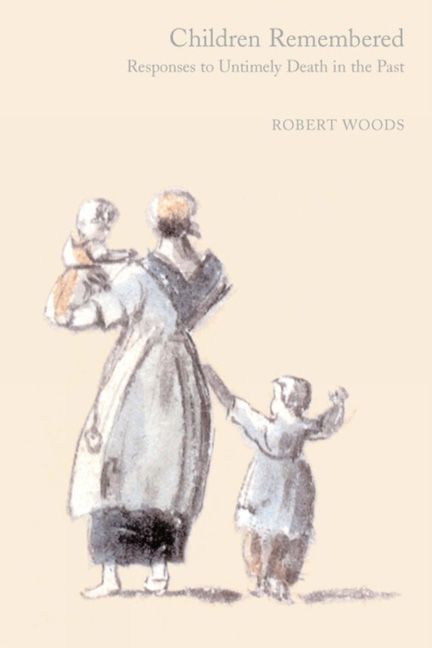Book contents
- Frontmatter
- Dedication
- Contents
- List of Tables
- List of Figures
- List of Illustrations
- 1 Introduction: ‘the lines of life’
- 2 Après la mort des enfants
- 3 Mortality, Childcare and Mourning
- 4 Children in Pictures and Monuments
- 5 Emotions and Literature
- 6 Poems, Mainly of Child Loss
- 7 The Vocabulary of Grief
- 8 Parallel Histories: Experience and Expression
- Acknowledgements
- Notes on the Sixty-Nine Poems
- Notes
- Select Bibliography
- Index
5 - Emotions and Literature
- Frontmatter
- Dedication
- Contents
- List of Tables
- List of Figures
- List of Illustrations
- 1 Introduction: ‘the lines of life’
- 2 Après la mort des enfants
- 3 Mortality, Childcare and Mourning
- 4 Children in Pictures and Monuments
- 5 Emotions and Literature
- 6 Poems, Mainly of Child Loss
- 7 The Vocabulary of Grief
- 8 Parallel Histories: Experience and Expression
- Acknowledgements
- Notes on the Sixty-Nine Poems
- Notes
- Select Bibliography
- Index
Summary
Shakespeare's 11-year-old twin son, Hamnet, was buried on 11 August 1596. How did his father react to the death? Did he express his grief, and if so in what way? To what extent can his work be seen to be autobiographical or biographical? If Shakespeare did express his own feelings of loss and regret, were other poets and playwrights so moved by their experiences? Chapter 5 explores some of these questions, but it will also conduct an experiment to see whether it is possible to use literary works as a way of describing changing attitudes to the deaths of children since the sixteenth century. It deals mainly with elegies, a form of poetry intended for the intense expression ofemotions. It is a compressed form so that illustrations can be viewed in their entirety, and it is a form of literary discourse that, unlike the novel, has a long and continuous history, especially in English.
This will not be an experiment without its problems. Let us consider just a few. Selection is required; there can be no sense of a representative sample and thus what is expressive and illuminating must be privileged over what may be said to be typical. The ‘materials’ on which this chapter is based comprise 69 poems written between the 1570s and the 1990s; they are printed in full in Chapter 6. They have been selected to reflect differences in sentiment, forms ofexpression, authorship, relationship, purpose and audience. Most deal directly with the deaths of children, but some have been chosen to reflect other sentiments or purposes. There is no attempt to make the 69 equally representative of the centuries: the eighteenth century is distinctly under-represented and in the nineteenth century other literary forms, the novel in particular, took the place of the poem as the most popular literary medium. Indeed, several studies have been undertaken using nineteenth-century novels as a means of reflecting popular feelings of grief over the deaths of children.
Many of the authors are parents lamenting the loss of their own child. There are also sufficient examples for some form of distinction to be drawn in terms of gender differences: mother and father, daughter and son. The poems of mothers will prove especially informative.
- Type
- Chapter
- Information
- Children RememberedResponses to Untimely Death in the Past, pp. 95 - 130Publisher: Liverpool University PressPrint publication year: 2006



